Health & Wellness
Masturbation Side Effects: 10 Harmful Effects Of Masturbation For Men
Published
2 years agoon
By
David

Masturbation is defined as the act of stimulating one’s genitals to the point of orgasm. Masturbation can help to relieve stress and sexual tension. It can also make you feel good, increase your sexual enjoyment with your spouse, and help you rest and relax.
Masturbation is practiced by people of various ages, genders, and sexual orientations. Masturbation has been observed in young toddlers as they begin to explore their bodies. It is normal for people to masturbate either alone or with a willing companion.
Masturbation is more important in men than in women, according to research financed by the Swedish Research Council. It has also been scientifically shown that following ejaculation, males feel comfortable and stress-free. What happens if we masturbate daily?
Why masturbation is bad? “STIMULATING when watching porn can result in overstimulation, which alters brain chemistry.”
As a result, when a man is with his true spouse, he avoids obtaining a real erection. Watching porn for the sake of masturbating affect unreasonable expectations in men’s brains, and they may be dissatisfied if their female partner is unable to meet those expectations. What are the side effects of masturbation?
8 masturbation side effects
1. Sore genitals
Men who masturbate regularly may develop edema, a condition in which the penis swells up and is constantly irritated. Edema is a condition in which a region of the body expands due to the accumulation of fluid in the tissues. This usually occurs when extreme pressure is applied to specific bodily areas.
2. Low Sperm Count


Masturbating, according to Dr. Chirag Bhandari, can be a healthy habit if done only once a month. When men or boys masturbate excessively, the body’s ability to produce testosterone is impeded, which could be one explanation for decreased sperm count, which is one of the negative effects of masturbation.
3. Dhat Syndrome
Dhat Syndrome is one of the most common sexual issues among men in India. The semen is passed while men urinate in dhat syndrome. “Dhat syndrome can be a possible side effect of masturbation,” according to a study published in the International Journal of Medical Research & Health Sciences in January 2015. This illness can lead to premature ejaculation and Erectile Dysfunction in males in the future.”
4. Nightfall Difficulties
Harmful effects of masturbation also involve nightfall problems. Nightfall problems can occur when males ejaculate in their sleep or have wet dreams. Men who have had too much exposure to sexual substances or who masturbate for an extended period may experience nighttime issues, which is a common side effect of masturbation.
5. Rash and Redness
Yanking it too hard during the climax or grasping the genitals too tightly might cause rashes and redness, requiring medical attention. These rashes are caused by skin dryness or infection, which can be caused by filthy hands or the use of low-quality lubricants and can be used to treat masturbation side effects.
6. Masturbation Addiction
Addiction to masturbating is the effect of excessive masturbation. According to a psychology study, one of the reasons why men avoid social gatherings and activities is masturbation addiction. The patient who is addicted to this type of substance prefers to stay at home rather than go out. He prefers to be alone in his room for the majority of his time. He also makes excuses to avoid attending any public gatherings.
7. Low Self-Esteem


Men who masturbate more than the recommended times are essentially coping with their anxiety and despair in their unique way. These folks lose their self-assurance and are constantly uneasy around others. Masturbation relaxes them for a short time, but it also makes them feel bad about themselves.
Read: 5 Proven Health Benefits of Ashwagandha for Men
8. Unfocused Mindset
Unfocused Mindset These individuals are unable to concentrate on their work and will eventually fail in their jobs or studies. At the same time, excessive masturbation leads men to become weak, making it difficult for them to concentrate on their work.
9. Emotional Burden
Experiencing guilt is a potential aftermath of masturbation. This feeling may stem from various sources such as religious beliefs or deep-seated insecurities. For instance, certain religions may label masturbation as a sin, contributing to overwhelming guilt. While it’s acceptable to align personal choices with beliefs, persistent guilt may necessitate seeking support from a therapist or counselor to navigate these emotional challenges.
10. Diminished Sensitivity
Excessive masturbation can lead to reduced sexual sensitivity, particularly when individuals grip their genitals too firmly during the act. This can inadvertently damage small arteries, causing a gradual decline in sexual sensitivity over time. While exercising caution is advisable in such situations, it’s not a cause for extreme concern. However, if a person experiences a complete lack of sensitivity or observes unusual changes in the penis, immediate cessation of masturbation is recommended, and consultation with a specialist is crucial. Seeking professional guidance is essential, as attempting self-diagnosis through online resources can potentially exacerbate the situation.
How to overcome masturbation
1. Pornography should be avoided
Masturbation may be triggered by exposure to pornography. Pornographic films, photos, and websites should be avoided by people who want to cease masturbating. It may be easier to stop the habit if a person can create a barrier between themselves and pornography.
2. Continue to be active
Finding ways to occupy one’s time that do not provoke the need to masturbate can be beneficial.
Masturbation can be replaced by finding other ways to release energy. People should think about starting a new activity or acquiring a new skill, such as learning a musical instrument or trying a new sport.
3. Seek expert assistance


When masturbation is hurting a person’s life, seeking help from a mental health specialist who specializes in human sexuality may be beneficial.
Additional concerns, such as obsessive-compulsive disorder, could be the root of the problem. Working through unpleasant feelings and learning behavior modification skills to stop masturbating might be beneficial when speaking with a therapist or psychologist.
Masturbation is a normal element of sexuality in most circumstances. The frequency of masturbation varies widely from person to person, and there is no such thing as a “normal” frequency.
It may be beneficial to stop or lessen the frequency of masturbation if it begins to interfere with other aspects of a person’s life or causes unhappiness.
Avoiding pornography and focusing on other tasks are two methods for stopping masturbation. However, if someone feels they have a sexual compulsion problem, they should seek professional therapy.
About the author
David is a blogger for over 15 years now and writes on health and wellness. The articles are focused to give extensive information about the subject.
- June 30, 2020
- June 30, 2020
- June 30, 2020
David is a blogger for over 15 years now and writes on health and wellness. The articles are focused to give extensive information about the subject.


Health & Wellness
Discharge Before Period: Causes, Symptoms, and Management
Published
1 day agoon
July 26, 2024By
Charlotte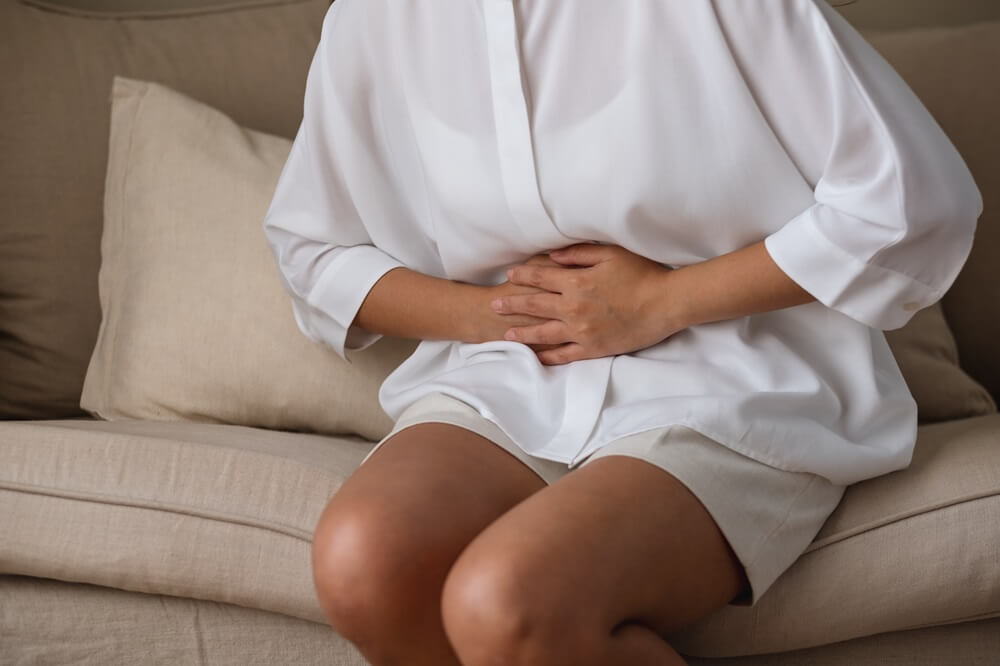

Discharge before a period can be a common occurrence for many individuals, often indicating changes in hormone levels and reproductive health. Understanding the causes, symptoms, and potential implications of discharge before your period is essential for maintaining overall well-being. In this comprehensive guide, we’ll explore everything you need to know about discharge before your period, including its causes, symptoms, and when to seek medical assistance.
Introduction
Discharge before a period, also known as premenstrual discharge, is a natural phenomenon experienced by many individuals with menstrual cycles. This discharge typically occurs in the days leading up to menstruation and is influenced by hormonal changes in the body. While discharge before a period is often normal, certain factors may indicate an underlying issue that requires medical attention. In this guide, we’ll delve into the various causes of discharge before your period, common symptoms to watch out for, and when it may be necessary to consult a healthcare professional.
1. Understanding the Menstrual Cycle
The menstrual cycle is a vital aspect of reproductive health for many women and people assigned female at birth. Understanding its intricacies is essential for recognizing normal and abnormal patterns in the body. The menstrual cycle is typically around 28 days long, though it can vary from person to person. It is divided into several phases:
- Menstrual Phase: This is when menstruation occurs, typically lasting from 3 to 7 days. The uterine lining sheds, resulting in menstrual bleeding.
- Follicular Phase: After menstruation, the body prepares for ovulation. The pituitary gland releases follicle-stimulating hormone (FSH), which stimulates the growth of follicles in the ovaries. One follicle will mature into an egg.
- Ovulation Phase: Mid-cycle, usually around day 14, the mature egg is released from the ovary. This is triggered by a surge in luteinizing hormone (LH). The egg travels down the fallopian tube, where it can be fertilized by sperm.
- Luteal Phase: After ovulation, the body produces more progesterone to prepare the uterine lining for a potential pregnancy. If fertilization does not occur, progesterone levels drop, leading to the start of the menstrual phase.
Throughout these phases, hormonal fluctuations significantly impact various bodily functions, including the production and characteristics of vaginal discharge.
2: Discharge as a Normal Occurrence
Vaginal discharge is a normal and healthy part of a functioning reproductive system. It serves several essential purposes, as detailed in this comprehensive guide on vaginal discharge.
- Cleaning: Discharge helps cleanse the vagina by flushing out dead cells and bacteria.
- Lubrication: It maintains vaginal moisture, which is crucial for comfort and sexual activity.
- Protection: Discharge contains antibodies and natural substances that help prevent infections.
The characteristics of vaginal discharge can vary throughout the menstrual cycle due to hormonal changes. Understanding these variations is key to recognizing what is normal for your body.
3: Types of Vaginal Discharge
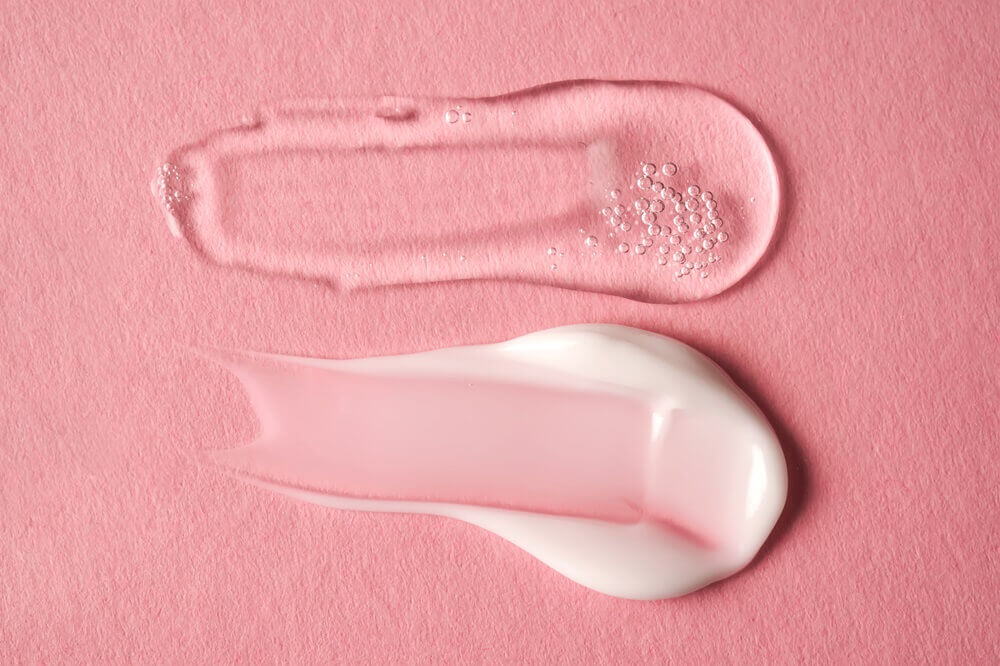

Vaginal discharge can appear in different forms, each indicating various stages of the menstrual cycle or potential health issues. Here are the common types:
- Clear and Watery: This type of discharge is often seen during ovulation, sexual arousal, or physical exercise. It is typically normal and indicates healthy lubrication.
- White and Creamy: Commonly observed at the beginning and end of the menstrual cycle. It is generally normal, although if accompanied by itching or odor, it could signal an infection like a yeast infection.
- Yellow or Green: This type of discharge might be normal if it is pale yellow and odorless. However, bright yellow or green discharge, especially if thick or accompanied by a foul smell, could indicate a bacterial or sexually transmitted infection (STI).
- Brown or Bloody: This can occur after menstruation, representing old blood being expelled. Spotting between periods or brown discharge could also be an early sign of pregnancy or perimenopause. Persistent brown or bloody discharge should be evaluated by a healthcare provider.
Understanding these variations helps in identifying normal versus abnormal discharge.
4: Discharge Before Period: What’s Normal?
Before menstruation, many individuals notice changes in their vaginal discharge. Common patterns include:
- Increased Discharge: Many experience an increase in discharge volume before their period due to the hormonal changes that prepare the uterus for menstruation.
- Thicker Consistency: The discharge may become thicker or creamier, resembling the texture of the lotion. This is influenced by the rise in progesterone during the luteal phase.
- White or Cloudy Appearance: Normal pre-menstrual discharge can appear white or cloudy without any strong odor. This is part of the body’s natural cycle and helps maintain vaginal health.
Understanding these typical patterns can alleviate concerns and help individuals identify what is normal for their bodies.
5: Causes of Discharge Before Period
Several factors can lead to changes in discharge before menstruation:
- Hormonal Changes: Fluctuations in estrogen and progesterone levels throughout the menstrual cycle are the primary drivers of changes in discharge consistency and volume.
- Infections: Bacterial vaginosis, yeast infections, and STIs can cause abnormal discharge. Infections often lead to additional symptoms such as itching, burning, or unpleasant odor.
- Health Conditions: Conditions such as polycystic ovary syndrome (PCOS), cervical polyps, or endometriosis can influence discharge patterns. These conditions may require medical evaluation and management.
Recognizing the underlying causes can help in seeking appropriate treatment if necessary.
6: Hormonal Influences on Discharge
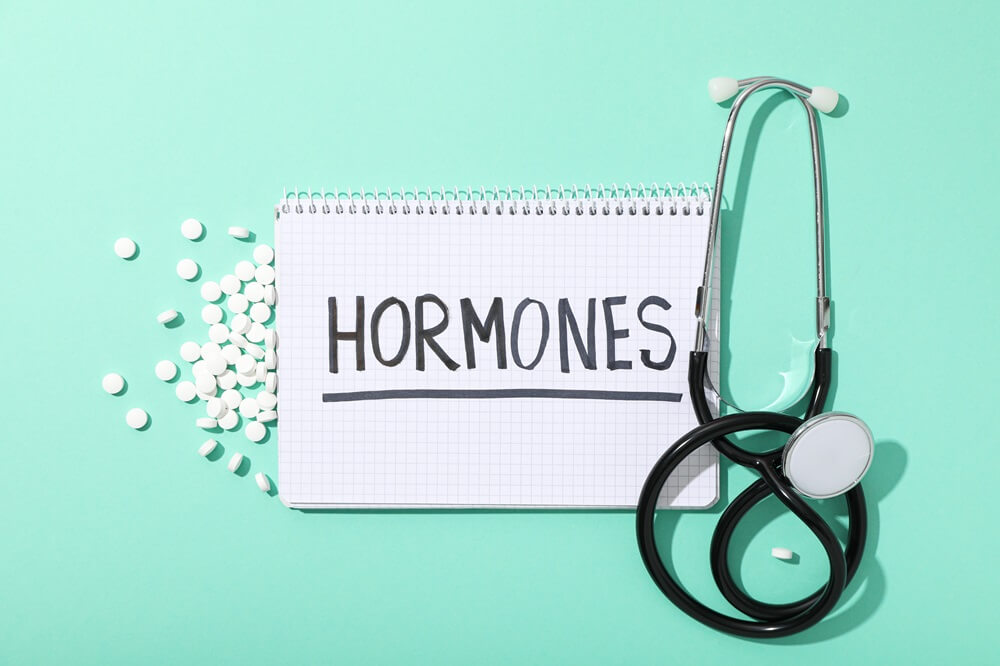

Hormonal fluctuations during the menstrual cycle significantly impact vaginal discharge:
- Estrogen: During the follicular phase of the menstrual cycle, rising estrogen levels lead to an increase in clear, stretchy discharge. This type of cervical mucus is highly conducive to sperm movement, facilitating easier travel through the cervix to potentially result in fertilization. Understanding these bodily changes can be crucial for fertility awareness and reproductive health. For more in-depth information on exploring our comprehensive guide on high estrogen symptoms and effective treatments.
- Progesterone: After ovulation, progesterone levels rise, causing the discharge to become thicker and less copious. This change helps create a barrier to protect the uterus if pregnancy occurs.
- Hormonal Imbalances: Imbalances caused by stress, illness, or hormonal disorders can result in abnormal discharge. It is essential to monitor any changes and consult with a healthcare provider if there are concerns.
Understanding these hormonal influences can provide insight into what is normal and when to seek medical advice.
7: Infections and Discharge
Infections can lead to abnormal vaginal discharge. Common infections include:
- Yeast Infections: Characterized by thick, white, cottage cheese-like discharge, yeast infections often cause itching and irritation. Over-the-counter antifungal treatments can be effective.
- Bacterial Vaginosis (BV): BV results in a thin, grayish discharge with a fishy odor. It is caused by an imbalance in vaginal bacteria and often requires prescription antibiotics.
- Sexually Transmitted Infections (STIs): STIs such as chlamydia, gonorrhea, and trichomoniasis can cause abnormal discharge. These infections typically need medical treatment and can have serious health implications if left untreated.
Identifying and treating infections promptly is crucial for maintaining reproductive health.
8: Other Health Conditions and Discharge
Certain health conditions can influence vaginal discharge:
- Cervical Polyps: Benign growths on the cervix can cause increased or unusual discharge, sometimes mixed with blood. Polyps often require removal by a healthcare provider.
- Fibroids: Non-cancerous tumors in the uterus can lead to heavy or prolonged discharge, especially around menstruation. Management may include medication or surgical options.
- Endometriosis: This condition, where uterine tissue grows outside the uterus, can cause abnormal discharge, pain, and heavy periods. Treatment may involve hormonal therapy or surgery.
Understanding these conditions and their impact on discharge can help individuals seek appropriate care and management.
9: Symptoms Accompanying Discharge
Abnormal vaginal discharge can be accompanied by various symptoms, indicating underlying issues:
- Itching and Burning: Often associated with infections like yeast infections or BV. These symptoms should be evaluated by a healthcare provider.
- Odor: A strong or unpleasant odor can signal an infection, such as BV or an STI. It is important to seek medical advice for proper diagnosis and treatment.
- Pelvic Discomfort: Pain or discomfort in the pelvic region, along with abnormal discharge, can indicate conditions such as endometriosis or fibroids. Medical evaluation is necessary for appropriate management.
Recognizing these accompanying symptoms can aid in early diagnosis and treatment of potential health issues.
10: Diagnostic Approaches
Healthcare providers use various diagnostic methods to identify the cause of abnormal vaginal discharge:
- Physical Exam: A thorough pelvic exam allows the provider to inspect the vaginal and cervical area for signs of infection or other abnormalities.
- Laboratory Tests: Swabs of vaginal discharge can be analyzed to identify bacterial or fungal infections, STIs, or other pathogens.
- Imaging Studies: Ultrasound or MRI may be used to detect structural issues such as fibroids, polyps, or ovarian cysts.
Accurate diagnosis is essential for effective treatment and management.
11: Treatment Options
Various treatment options are available for managing abnormal discharge:
- Medications: Antibiotics for bacterial infections, antifungal treatments for yeast infections, and antiviral medications for certain STIs are common treatments.
- Lifestyle Modifications: Maintaining good hygiene, wearing breathable cotton underwear, and avoiding douches or scented products can help prevent infections and irritation.
- Home Remedies: Some individuals find relief with natural remedies like probiotics, apple cider vinegar baths, or tea tree oil suppositories. It is important to consult a healthcare provider before trying home remedies.
Effective treatment requires a combination of medical intervention and healthy lifestyle choices.
12: Preventive Measures
Maintaining vaginal health and preventing abnormal discharge involves several strategies:
- Safe Sex Practices: Using condoms and having regular STI screenings can reduce the risk of infections.
- Good Hygiene: Regular washing with mild, unscented soap and water, and avoiding harsh products can help maintain the natural balance of vaginal flora.
- Diet and Hydration: A balanced diet rich in probiotics, staying hydrated, and avoiding excessive sugar can support vaginal health.
Preventive measures are key to reducing the risk of infections and maintaining overall reproductive health.
13: When to Seek Medical Help
It is important to seek medical attention for abnormal vaginal discharge if:
- Persistent Symptoms: If abnormal discharge lasts more than a few days or is recurrent, it should be evaluated by a healthcare provider.
- Severe Discomfort: Intense itching, burning, or pelvic pain requires medical assessment.
- Concerns About Reproductive Health: Any worries about fertility, pregnancy, or overall reproductive health should be discussed with a healthcare professional.
Timely medical intervention can address underlying issues and prevent complications.
14: Addressing Psychological Impact
Abnormal discharge can have a psychological impact, causing stress and anxiety:
- Understanding: Recognizing that discharge variations are often normal and that medical help is available for abnormalities can alleviate anxiety.
- Support: Talking to a trusted friend, partner, or healthcare provider about concerns can provide emotional support and reassurance.
- Education: Educating oneself about vaginal health and normal discharge patterns can empower individuals to make informed decisions about their health.
Addressing the psychological impact is an important aspect of overall well-being.
15: Empowering Women’s Health
Understanding vaginal discharge and its variations is essential for reproductive health:
- Knowledge: Educating oneself about the menstrual cycle and normal discharge patterns is empowering and helps in identifying potential issues early.
- Advocacy: Advocating for one’s health by seeking medical help when needed and discussing concerns openly with healthcare providers is crucial.
- Destigmatization: Breaking the stigma around discussions of vaginal health encourages open dialogue and promotes better health outcomes.
Empowering women with knowledge and support fosters a healthier, more informed approach to reproductive health.
In conclusion, understanding the menstrual cycle, recognizing normal and abnormal discharge patterns, and seeking appropriate medical care are essential components of maintaining reproductive health. By educating oneself and advocating for their health, individuals can navigate their reproductive journey with confidence and support.
About the author



Charlotte
Charlotte is a health, beauty and wellness blogger and a mother of two, who lives between India and London
- July 22, 2020
- August 3, 2020
- August 10, 2020
Health & Wellness
Understanding Low Blood Pressure: Symptoms & Causes Of Hypotension
Hypotension, commonly known as low blood pressure, occurs when the pressure of the blood flowing through your arteries is lower than normal.
Published
3 months agoon
April 22, 2024By
Charlotte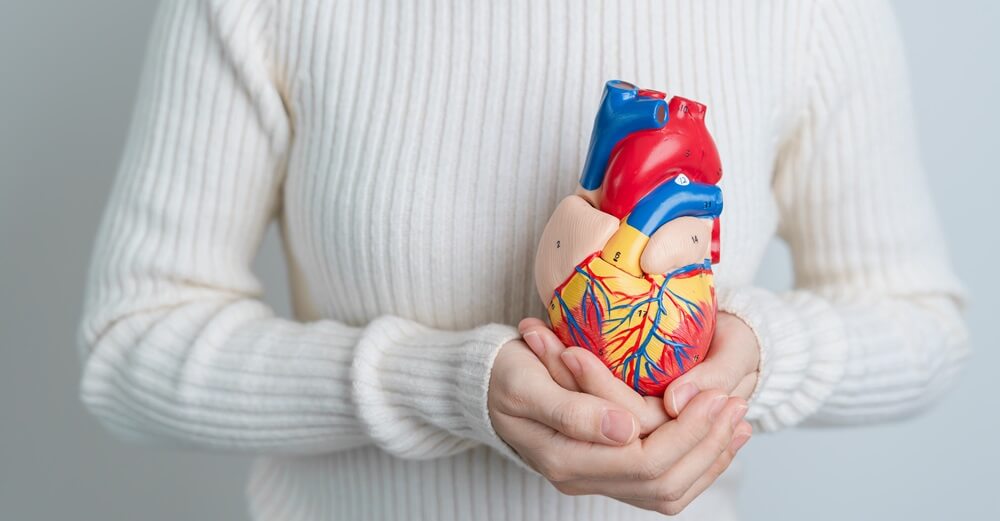

Hypotension, commonly known as low blood pressure, occurs when the pressure of the blood flowing through your arteries is lower than normal. While many people may think of high blood pressure as a significant health concern, hypotension can also have adverse effects on your well-being. In this article, we’ll delve into the symptoms of hypotension and what they could indicate for your health.
Symptoms of Hypotension
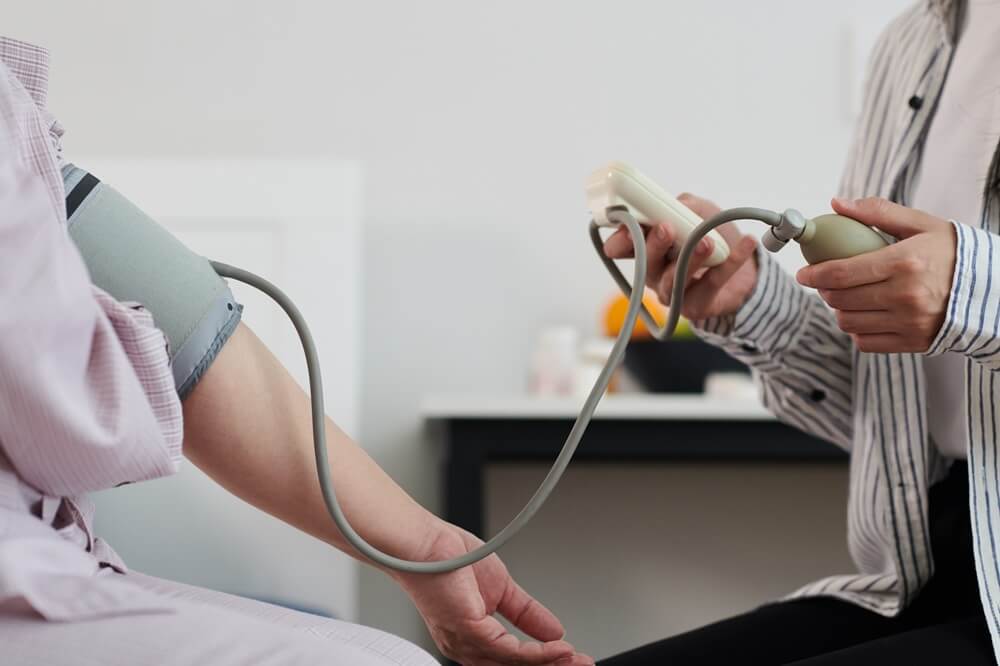
1. Dizziness and Lightheadedness
One of the most common symptoms of hypotension is dizziness or lightheadedness, especially when standing up suddenly. This sensation occurs because the brain is not receiving an adequate supply of oxygenated blood due to low blood pressure. Individuals may feel as though they are about to faint or lose consciousness.
2. Fainting or Syncope
In severe cases of hypotension, fainting, also known as syncope, may occur. This sudden loss of consciousness happens when the brain temporarily does not receive enough blood flow to function properly. Fainting episodes can be alarming and may result in injury if the individual falls during the episode.
3. Fatigue and Weakness
Low blood pressure can lead to feelings of fatigue and weakness, even after minimal physical exertion. This symptom occurs because the muscles and organs may not be receiving an adequate supply of oxygen and nutrients due to reduced blood flow. Individuals with hypotension may feel lethargic and have difficulty performing everyday tasks.
4. Blurred Vision
Vision changes, such as blurred vision or tunnel vision, can occur when blood pressure drops too low. Reduced blood flow to the eyes can impair vision temporarily, causing objects to appear fuzzy or unclear. Blurred vision associated with hypotension usually improves once blood pressure returns to normal levels.
5. Nausea and Cold, Clammy Skin
Some individuals with hypotension may experience nausea, especially when standing up or moving suddenly. Cold, clammy skin is another symptom that can accompany low blood pressure. These sensations occur because reduced blood flow to the skin affects its temperature and moisture levels.
6. Rapid, Shallow Breathing
In response to low blood pressure, the body may increase respiratory rate in an attempt to compensate for decreased oxygen delivery to tissues. Rapid, shallow breathing can occur as the body tries to maintain adequate oxygen levels despite reduced blood flow.
Causes Of Hypotension

1. Dehydration:
Dehydration occurs when the body loses more fluids than it takes in, leading to a decrease in blood volume and subsequently lowering blood pressure. This can happen due to inadequate fluid intake, excessive sweating, diarrhea, or vomiting.
2. Medications:
Certain medications, such as diuretics used to treat high blood pressure and heart conditions, as well as alpha and beta-blockers, can cause hypotension as a side effect. These medications may relax blood vessels or decrease the heart rate, resulting in reduced blood pressure.
3. Heart Conditions:
Various heart conditions can disrupt the heart’s ability to pump blood effectively, leading to low blood pressure. Conditions such as heart attacks, heart valve disorders, and cardiomyopathy can impair blood flow and result in hypotension.
4. Endocrine Disorders:
Disorders of the endocrine system, which regulates hormone production, can affect blood pressure. Conditions like Addison’s disease, characterized by insufficient adrenal hormone production, and hypothyroidism, where the thyroid gland doesn’t produce enough thyroid hormone, can lead to hypotension.
5. Nutritional Deficiencies:
Deficiencies in essential nutrients such as vitamin B12 and folate can result in anemia, a condition characterized by a low red blood cell count. Anemia reduces the blood’s ability to carry oxygen to tissues, leading to decreased blood pressure.
6. Pregnancy:
During pregnancy, hormonal changes and an increase in blood volume can cause blood vessels to relax and dilate, leading to lower blood pressure. While mild hypotension is common during pregnancy, severe drops in blood pressure may indicate underlying complications.
7. Neurological Conditions:
Neurological disorders affecting the autonomic nervous system, which controls involuntary bodily functions like blood pressure regulation, can result in hypotension. Conditions such as Parkinson’s disease, multiple system atrophy, and neuropathy can disrupt the body’s ability to maintain blood pressure.
8. Septic Shock:
Septic shock occurs when an overwhelming infection leads to a systemic inflammatory response, causing blood vessel dilation and leakage. This results in a significant drop in blood pressure, depriving organs of adequate blood flow and oxygen.
9. Allergic Reactions:
Anaphylaxis, a severe allergic reaction, can trigger a sudden drop in blood pressure known as anaphylactic shock. This life-threatening condition can occur in response to allergens such as foods, medications, or insect stings.
10. Blood Loss:
Significant blood loss from trauma, surgery, or internal bleeding can lead to hypovolemic shock, characterized by a rapid decrease in blood pressure. Without prompt medical intervention, hypovolemic shock can be fatal.
11. Vasovagal Syncope:
Vasovagal syncope is a common cause of fainting and occurs when a trigger, such as emotional stress or the sight of blood, causes a sudden drop in heart rate and blood pressure. This can lead to temporary loss of consciousness.
12. Age-related Changes:
As individuals age, changes in blood vessel elasticity and heart function can contribute to lower blood pressure. Blood vessels may become less flexible, and the heart may not pump as forcefully, leading to hypotension.
13. Orthostatic Hypotension:
Orthostatic hypotension occurs when blood pressure drops suddenly upon standing up from a sitting or lying position. This can happen due to dehydration, medications, or conditions affecting the autonomic nervous system.
14. Diabetic Neuropathy:
Diabetic neuropathy, a complication of diabetes, can damage nerves that control blood pressure regulation. This can result in orthostatic hypotension, where blood pressure drops upon standing, leading to dizziness or fainting.
15. Anemia:
Anemia, characterized by a deficiency of red blood cells or hemoglobin, can reduce oxygen delivery to tissues and organs, leading to low blood pressure. This can result from nutritional deficiencies, chronic diseases, or blood loss.
Understanding the various causes of hypotension is essential for accurate diagnosis and appropriate management. If you experience symptoms of low blood pressure, such as dizziness, fainting, or fatigue, it’s important to consult a healthcare professional for evaluation and treatment.
Conclusion
Recognizing the symptoms of hypotension is crucial for early detection and management of this condition. If you experience any of the symptoms mentioned above, especially fainting or severe dizziness, it is essential to seek medical attention promptly. Your healthcare provider can conduct a thorough evaluation to determine the underlying cause of your low blood pressure and recommend appropriate treatment options.
Remember, while occasional episodes of hypotension may be harmless, persistent or severe symptoms warrant medical intervention to prevent complications and improve your overall health and well-being. Stay informed about your blood pressure levels and consult with your healthcare provider if you have any concerns or questions about your cardiovascular health.
By understanding the symptoms of hypotension and taking proactive steps to address them, you can better manage your health and enjoy a higher quality of life.
About the author



Charlotte
Charlotte is a health, beauty and wellness blogger and a mother of two, who lives between India and London
- July 22, 2020
- August 3, 2020
- August 10, 2020
Health & Wellness
9 Effective Weight Gain Exercise: Build Muscle & Strength
While many people focus on weight loss, there are just as many individuals looking to gain healthy weight, whether for athletic performance, muscle building, or overall well-being.
Published
3 months agoon
April 20, 2024By
David

When it comes to achieving weight gain goals, incorporating the right exercise regimen into your routine is crucial. While many people focus on weight loss, there are just as many individuals looking to gain healthy weight, whether for athletic performance, muscle building, or overall well-being. In this comprehensive guide, we’ll explore the most effective weight gain exercises to help you reach your desired fitness goals.
Understanding the Basics of Weight Gain
Before diving into specific exercises, it’s essential to understand the principles and reasons behind weight gain. While consuming a calorie surplus is fundamental to gaining weight, engaging in resistance training exercises is equally important for promoting muscle growth and strength development. By combining proper nutrition with targeted exercises, you can achieve healthy and sustainable weight gain results.
Is it essential to go to the gym for weight gain?
No, going to the gym is not necessary for weight gain. While the gym can be a helpful environment for gaining muscle mass and strength, there are many other ways to achieve weight gain without it. Some effective strategies include:
- Home Workouts: You can perform bodyweight exercises such as push-ups, squats, lunges, and planks at home to build muscle and strength.
- Outdoor Activities: Engaging in outdoor activities such as hiking, cycling, swimming, and sports can help you build muscle and increase overall calorie intake.
- Resistance Training: Investing in a set of resistance bands or dumbbells for home use can provide you with the tools needed to perform strength training exercises to promote muscle growth.
- Calorie Surplus: To gain weight, you need to consume more calories than you burn. Focus on eating nutrient-dense foods that are high in calories, such as nuts, seeds, nut butter, avocados, whole grains, lean meats, and dairy products.
- Consistency: Consistency is key when it comes to weight gain. Stick to a regular eating schedule and ensure that you are consistently consuming enough calories to support your goals.
- Rest and Recovery: Adequate rest and recovery are essential for muscle growth. Make sure to get enough sleep each night and allow your muscles time to recover between workouts.
Ultimately, while the gym can be a convenient and effective option for gaining weight, it is not the only way. By focusing on proper nutrition, consistent exercise, and adequate rest, you can achieve your weight gain goals without needing to go to the gym.
9 weight gain exercise
1. Squats


Squats are a foundational compound exercise that engages the lower body muscles, including the quadriceps, hamstrings, and glutes. By performing squats with proper form and gradually increasing resistance, you can build lower body strength and enhance muscle mass.
How to do it
- Stand with your feet shoulder-width apart and toes slightly turned out.
- Engage your core, keep your chest up, and lower your body by bending your knees and pushing your hips back.
- Descend until your thighs are parallel to the ground, ensuring your knees stay in line with your toes.
- Push through your heels to return to the starting position.
- Keep your back straight throughout the movement and avoid leaning forward excessively.
2. Deadlifts


Deadlifts are another essential compound exercise that targets multiple muscle groups simultaneously, such as the back, legs, and core. Incorporating deadlifts into your routine helps develop overall strength and promotes muscle growth throughout the body.
How to do it
- Stand with your feet hip-width apart, toes under the barbell, and knees slightly bent.
- Bend at your hips and knees to grip the barbell with an overhand grip, hands slightly wider than shoulder-width apart.
- Keep your back straight, chest up, and shoulders pulled back.
- Lift the barbell by straightening your hips and knees, ensuring the barbell stays close to your body.
- Lower the barbell back to the ground by reversing the movement, keeping your back straight and core engaged.
3. Bench Press


The bench press is a classic upper body exercise that primarily targets the chest, shoulders, and triceps. By including bench presses in your regimen and progressively adding weight, you can strengthen your upper body and achieve better muscle definition.
How to do it
- Lie flat on a bench with your feet planted on the floor.
- Grip the barbell slightly wider than shoulder-width apart, arms fully extended.
- Lower the barbell to your chest in a controlled manner while keeping your elbows tucked close to your body.
- Press the barbell back up to the starting position, extending your arms fully.
- Keep your back flat against the bench and maintain a stable base with your feet.
4. Pull-Ups


Pull-ups are an effective bodyweight exercise for targeting the back, biceps, and forearms. This compound movement is crucial for building upper body strength and improving pulling power.
How to do it
- Grip the pull-up bar with your hands slightly wider than shoulder-width apart, palms facing away from you.
- Hang from the bar with your arms fully extended and engage your core.
- Pull yourself up towards the bar by engaging your back muscles and bending your elbows.
- Lower yourself back down to the starting position in a controlled manner, fully extending your arms.
- Avoid swinging or using momentum to complete the movement.
5. Lunges


Lunges are unilateral exercises that engage the quadriceps, hamstrings, and glutes while enhancing balance and stability. Incorporating lunges into your routine helps strengthen the lower body and reduce muscle imbalances.
How to do it
- Stand tall with your feet hip-width apart.
- Take a step forward with one foot and lower your body until both knees are bent at a 90-degree angle.
- Keep your front knee aligned with your ankle and your back knee hovering just above the ground.
- Push through your front heel to return to the starting position.
- Repeat on the other side, alternating legs for each rep.
6. Bent-Over Rows


Bent-over rows are excellent for targeting the muscles of the back, including the latissimus dorsi, rhomboids, and traps. Performing bent-over rows with proper form and a full range of motion can lead to a strong and well-defined back.
How to do it
- Stand with your feet shoulder-width apart, knees slightly bent, and hold a barbell or dumbbells with an overhand grip.
- Hinge at your hips, keeping your back straight and chest up, until your torso is parallel to the ground.
- Pull the weight towards your lower chest by bending your elbows and squeezing your shoulder blades together.
- Lower the weight back down in a controlled manner, maintaining tension in your back muscles throughout the movement.
7. Overhead Press


The overhead press targets the deltoid muscles of the shoulders, as well as the triceps and upper chest. Including overhead presses in your routine helps develop shoulder strength and improve overall upper body power.
How to do it
- Stand tall with your feet hip-width apart and hold a barbell or dumbbells at shoulder height with palms facing forward.
- Press the weight overhead by extending your arms fully, keeping your core engaged and avoiding arching your back.
- Lower the weight back down to shoulder height in a controlled manner.
- Keep your elbows slightly in front of your body throughout the movement to prevent strain on your shoulders.
8. Dumbbell Flyes


Dumbbell flyes are isolation exercises that primarily target the chest muscles. Focusing on controlled movements and the mind-muscle connection during flyes can effectively isolate the chest and promote muscle growth.
How to do it
- Lie flat on a bench with a dumbbell in each hand, arms extended directly above your chest.
- Lower the dumbbells out to the sides in a wide arc motion while keeping a slight bend in your elbows.
- Keep your elbows slightly bent throughout the movement and focus on feeling a stretch in your chest muscles.
- Return the dumbbells to the starting position by squeezing your chest muscles together.
9. Leg Press


The leg press machine targets the quadriceps, hamstrings, and glutes. Incorporating leg presses into your routine can effectively stimulate lower body muscle growth and enhance overall leg strength.
How to do it
- Sit on the leg press machine with your back against the pad and your feet flat on the footplate.
- Grasp the handles on the sides of the machine for stability.
- Push the footplate away from you by extending your legs, straightening your knees.
- Lower the footplate back to the starting position by bending your knees.
- Repeat for the desired number of repetitions.
Key Points to Keep in Mind:
- Warm up properly before starting your workout to prevent injury and prepare your muscles for exercise.
- Use proper form and technique for each exercise to maximize effectiveness and minimize the risk of injury.
- Gradually increase the weight or resistance as you become stronger to continue challenging your muscles and promoting growth.
- Listen to your body and rest as needed between sets and exercises to prevent overtraining and allow for proper recovery.
- Stay hydrated and fuel your body with nutritious foods to support muscle growth and overall health.
By following these steps and keeping these key points in mind, you can safely and effectively perform the exercises mentioned above to build muscle and strength.
Understand, why you cant gain weight?
There could be several reasons why someone may struggle to gain weight:
- Insufficient Caloric Intake: One of the most common reasons for difficulty in gaining weight is not consuming enough calories. To gain weight, you need to consume more calories than you burn through daily activities and exercise.
- High Metabolism: Some individuals naturally have a faster metabolism, which means they burn calories more quickly. This can make it challenging to maintain a calorie surplus required for weight gain.
- Poor Appetite: A lack of appetite or feelings of fullness can lead to inadequate calorie intake. Factors such as stress, medication, or certain medical conditions can affect appetite.
- Underlying Health Conditions: Certain medical conditions, such as thyroid disorders, gastrointestinal issues, or hormonal imbalances, can affect metabolism and weight gain.
- Lack of Muscle Mass: Gaining weight in the form of muscle requires resistance training to stimulate muscle growth. Without regular strength training exercises, weight gain may primarily consist of fat rather than muscle.
- Inconsistent Eating Habits: Irregular meal patterns or skipping meals can prevent you from consuming enough calories throughout the day to support weight gain.
- Stress and Anxiety: High levels of stress or anxiety can affect appetite and digestion, leading to decreased calorie intake and potential weight loss.
- Genetics: Genetic factors can influence metabolism, body composition, and appetite, making it more challenging for some individuals to gain weight than others.
If you’re struggling to gain weight, it’s essential to consult with a healthcare professional or registered dietitian to identify any underlying issues and develop a personalized plan to support healthy weight gain.
Final words
Incorporating a variety of effective weight gain exercises into your workout routine is essential for building muscle mass and strength. By focusing on compound movements that target multiple muscle groups and incorporating isolation exercises to target specific muscles, you can achieve your weight gain goals and develop a strong, muscular physique.
Ready to take your fitness journey to the next level? Be sure to include these effective weight gain exercises in your routine and track your progress over time. With dedication and consistency, you can achieve the physique you’ve always desired.
About the author
David is a blogger for over 15 years now and writes on health and wellness. The articles are focused to give extensive information about the subject.
- June 30, 2020
- June 30, 2020
- June 30, 2020
Trending
-



 Health & Wellness4 months ago
Health & Wellness4 months agoRosemary Leaves For Hair: Benefits and How To Use It
-



 Love & Relationship2 months ago
Love & Relationship2 months agoUnderstanding the Psychology Behind Infidelity: Why Do People Cheat in Relationships?
-



 Health & Wellness3 months ago
Health & Wellness3 months agoUnderstanding Low Blood Pressure: Symptoms & Causes Of Hypotension
-



 Health & Wellness4 months ago
Health & Wellness4 months agoSay Goodbye to Double Chin: 8 Effective Double Chin Exercises
-



 Food & Recipes4 months ago
Food & Recipes4 months agoBest Juices To Boost Immune System For a Stronger Defense
-



 Health & Wellness4 months ago
Health & Wellness4 months agoLow Porosity Hair: Important Things You Need To Know
-



 Food & Recipes2 months ago
Food & Recipes2 months agoWild Lettuce: Know Wild Lettuce Benefits, Side Effects & More
-



 Health & Wellness3 months ago
Health & Wellness3 months ago9 Effective Weight Gain Exercise: Build Muscle & Strength










